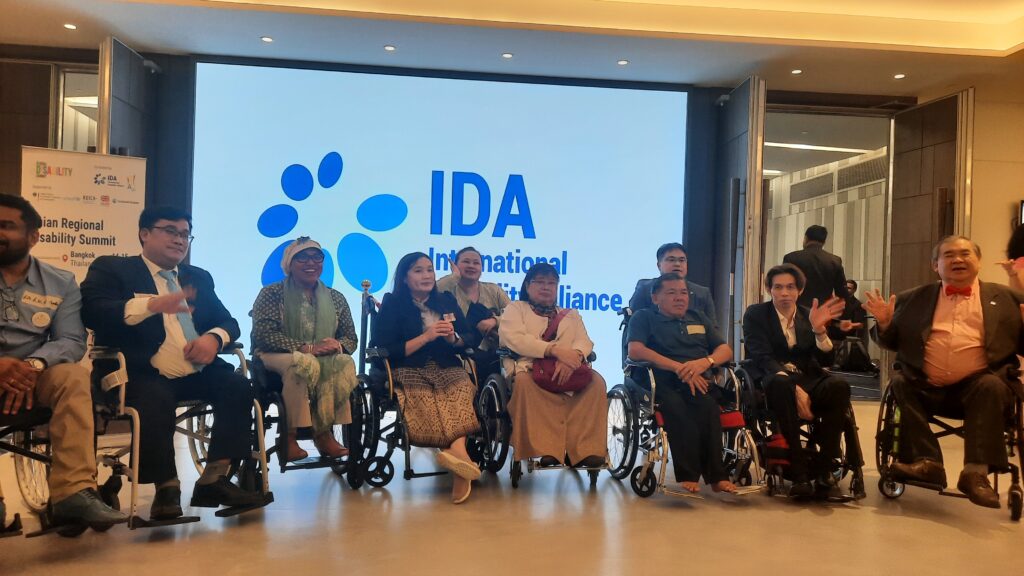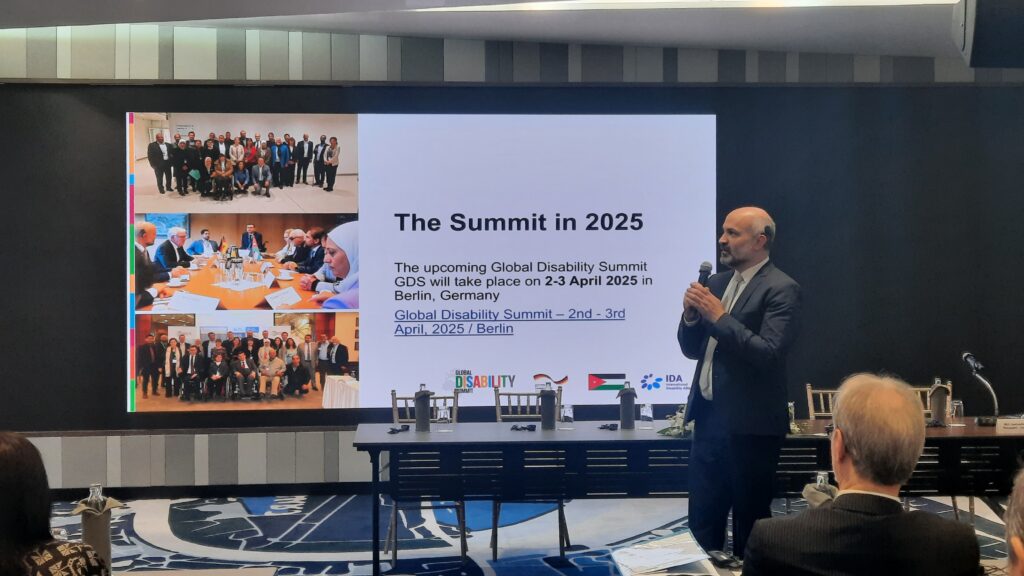
The ASEAN Disability Forum (ADF) and the International Disability Alliance (IDA) co-organized the Asian Regional Disability Summit, which was supported by the German Federal Ministry for Economic Cooperation and Development (BMZ), UNICEF, the Korea International Cooperation Agency (KOICA), and Inclusive Futures. It took place in Bangkok, Thailand, on February 14-15, 2025.
This summit, part of the Regional Pre-Summits series for the Global Disability Summit (GDS) 2025, sought to integrate the GDS mechanism at the regional level by encouraging engagement with regional and local stakeholders. It addressed Asia’s distinct difficulties and possibilities for expanding disability inclusion, while also connecting GDS themes and objectives with the region’s distinctive environment.
The plenary sessions covered topics such as disability-inclusive development, gender equality, poverty alleviation, inclusive employment, climate change, disaster risk reduction, and access to health, including recovery from COVID-19. The summit also discussed how to enhance regional transformation by implementing GDS pledges, reflecting on the Asian Pacific Decade of Persons with Disabilities, and promoting CRPD implementation in Asia region.

The summit was opened by (Mr.) PT Lim, ASEAN Disability Forum Chair, (Mr.) Peter Baur, Commissioner GDS, and (Ms.) June Kunugi, Regional Director, UNICEF East Asia and Pacific Regional Office. Organizations of persons with disabilities in Asia region, UN Agencies in ASEAN regional office, GIZ Indonesia, and other strategic partners to disability issues also attended the summit.
At the end of the session, the co-hosts created an outcome document that will serve as a call to action, including clear promises for GDS 2025 and future initiatives to accelerate disability inclusion in Asia. The outcome document, which builds on key regional instruments such as the Incheon Strategy, the ASEAN Enabling Masterplan 2025, and the Asia-Pacific Decade of Persons with Disabilities, calls for increased regional cooperation, improved data collection, and ongoing financial and technical support for OPD-led initiatives to drive long-term progress on disability inclusion. You may read the entire result document below.
